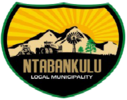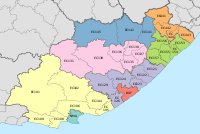
The Alfred Nzo District Municipality is one of the 6 districts of the Eastern Cape province of South Africa. The seat is Mount Ayliff. The majority of its 801,344 residents speak isiXhosa. The district code is DC44.

The OR Tambo District Municipality is one of the seven districts of the Eastern Cape province of South Africa. It is within the Wild Coast Region. The seat is Mthatha. As of 2011, the vast majority (94%) of its 1,364,943 inhabitants spoke isiXhosa. The district is named after Oliver Tambo. The district code is DC15.
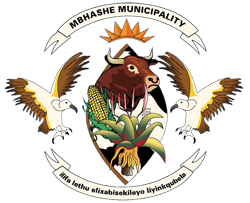
Mbhashe Municipality is a local municipality in the Eastern Cape province of South Africa. The municipality was constituted in terms of the Municipal Structures Act of 1998 and comprises the areas that previously formed the Elliotdale, Willowvale and Dutywa town councils. The municipality is located in the north eastern part of the Amathole District Municipality. The main administrative office is situated in Dutywa.
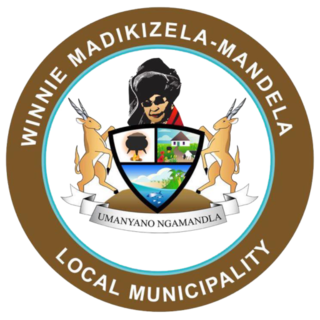
Winnie Madikizela-Mandela Municipality, formerly Mbizana Municipality, is a local municipality within the Alfred Nzo District Municipality, in the Wild Coast Region of the Eastern Cape province of South Africa. It is named after Winnie Madikizela-Mandela, an anti-apartheid activist and wife of President Nelson Mandela.

Msukaligwa Municipality is a local municipality within the Gert Sibande District Municipality, in the Mpumalanga province of South Africa. Ermelo is the seat of the municipality.

Ba-Phalaborwa Municipality is a local municipality within the Mopani District Municipality, in the Limpopo province of South Africa. The seat is Phalaborwa.

The City of Matlosana, formerly the City Council of Klerksdorp, is a local municipality within the Dr Kenneth Kaunda District Municipality, in the North West province of South Africa.

uMdoni Municipality is a local municipality within the Ugu District Municipality, in the KwaZulu-Natal province of South Africa. uMdoni is the isiZulu name for the indigenous forest waterberry plant.

Elundini Municipality is a local municipality within the Joe Gqabi District Municipality, in the Eastern Cape province of South Africa. The name originates from isiZulu and refers to the Drakensberg Mountains.

Mnquma Municipality is a local municipality within the Amatole District Municipality, in the Eastern Cape of South Africa.

Emalahleni Municipality is a local municipality within the Chris Hani District Municipality, in the Eastern Cape province of South Africa. Emalahleni is an isiXhosa word meaning "a place of coal".

Amahlathi Municipality is a local municipality within the Amatole District Municipality, in the Eastern Cape province of South Africa. Amahlati is an isiXhosa word meaning "a place where many trees are grouped together, a forest". Forests are a key feature of the area.
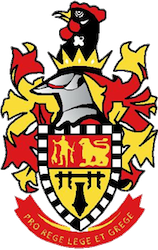
Greater Kokstad Municipality is a local municipality within the Harry Gwala District Municipality, in the KwaZulu-Natal province of South Africa. Kokstad is derived from Dutch, meaning "town of Kok". It was named after Adam Kok III.

Umzimvubu Municipality is a local municipality within the Alfred Nzo District Municipality, in the Eastern Cape province of South Africa. Umzimvubu, the name of the Mzimvubu River, is an isiXhosa word meaning "home of the hippopotamus". The municipal area comprises an area of 2506 square kilometres. The municipality has undergone a number of amendments in terms of municipal and ward demarcation which has a profound impact on planning in the area.

Dr AB Xuma Local Municipality is a local municipality within the Chris Hani District Municipality, in the Eastern Cape province of South Africa. Ngcobo is an isiXhosa word for a sweet grass found in the area.
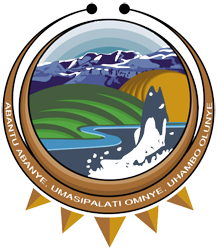
Senqu Municipality is a local municipality within the Joe Gqabi District Municipality, in the Eastern Cape province of South Africa. Senqu is the Sesotho name for the Orange River.
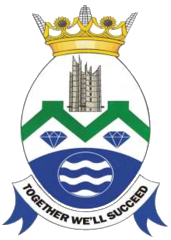
Masilonyana Municipality is a local municipality within the Lejweleputswa District Municipality, in the Free State province of South Africa. Masilonyana is a Setswana word meaning "freedom".
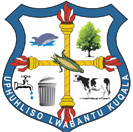
Ingquza Hill Municipality, previously known as Qaukeni Municipality, is a local municipality within the OR Tambo District Municipality, in the Eastern Cape province of South Africa.

JB Marks Municipality is a local municipality within the Dr Kenneth Kaunda District Municipality, in the North West province of South Africa. It was established after the August 2016 local elections by merging the Tlokwe and Ventersdorp municipalities.
The Ntabankulu Local Municipality council consists of thirty-eight members elected by mixed-member proportional representation. Nineteen councillors are elected by first-past-the-post voting in nineteen wards, while the remaining nineteen are chosen from party lists so that the total number of party representatives is proportional to the number of votes received. In the election of 1 November 2021 the African National Congress (ANC) won a majority of thirty-one seats.

